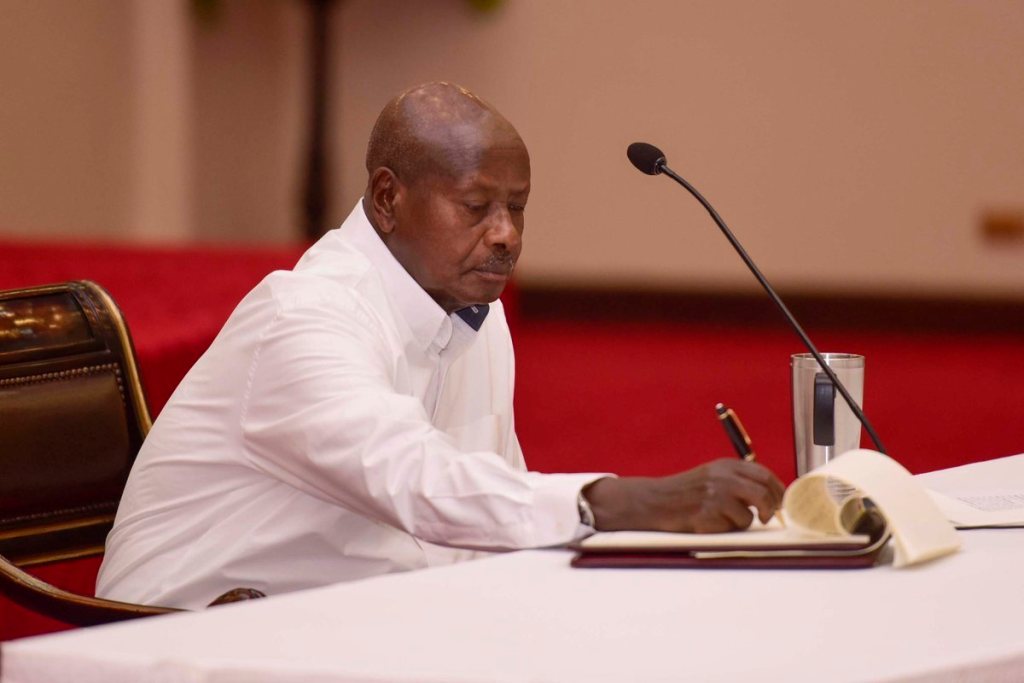President Yoweri Kaguta Museveni has ordered a sweeping overhaul of Uganda’s citizenship verification process, aiming to address long-standing grievances over the mistreatment of immigrant communities, particularly the Banyarwanda. In a bold directive issued following a meeting with Banyarwanda leaders on June 23, 2025, at State House Entebbe, Museveni criticized the bureaucratic inefficiencies and political motivations that have led to the exclusion and mistreatment of these communities, particularly in matters of citizenship.
In a nine-page communication, the President expressed his growing frustration with allegations that long-settled immigrant populations were being unfairly targeted and denied their rights. “Some people are making false allegations for evil ulterior motives,” he wrote, adding that the verification process for citizenship should be handled by local communities, who are familiar with their own people, rather than distant bureaucrats or officials at the National Identification and Registration Authority (NIRA).
Museveni emphasized that citizenship is a “mass, community issue” and should be verified by local leaders, including Local Council 1 (LC1) committees, elders, and members of the Internal Security Organization (ISO). According to his directive, local verification committees will be responsible for determining who qualifies for Ugandan citizenship, especially for those whose families have lived in the country since before 1962. He called it “unfair and unnecessary” to leave such decisions to bureaucrats in Kampala, accusing them of misusing state resources and unjustly targeting communities that have been in Uganda for generations.
The President offered personal examples from his own upbringing in Ntungamo, where communities of Rwandan, Nubian, and even Indian descent have long been integrated into Ugandan society. “All these are citizens of Uganda automatically, unless they choose not to be,” he stated, emphasizing that it would be wrong for people like Mzee Kabuteembe or Khamis to “beg” the Immigration Board for recognition. He reminded Ugandans that the Constitution guarantees automatic citizenship to those whose families were in Uganda by 1926, reaffirming the country’s commitment to inclusivity.
Under the new directive, all citizenship registration will be handled at the local level. Those whose families were in Uganda before 1962 will not be required to pay any fees, while individuals who arrived after 1962 will pay standard immigration fees. NIRA will oversee documentation but will defer questionable cases to local verification committees, and final decisions on disputed cases will rest with District Citizenship Verification Committees. These committees will be chaired by Resident District Commissioners (RDCs) and include local council representatives.
Museveni also stated that refugee families who remained in Uganda after conflicts should be allowed to register as citizens after legal amendments, and later benefit from East African Federation citizenship arrangements. He provided a 14-point list of questions for local committees to ask applicants, including details on names, birth, clan, language spoken, and willingness to renounce foreign citizenship. He made it clear that false declarations would be treated as a criminal offense under Ugandan law.
This directive marks a significant shift in how Uganda will handle citizenship verification, placing local knowledge and community involvement at the forefront of the process. The move aims to protect long-settled communities from bureaucratic exclusion and is part of a broader push to decolonize administrative systems in favor of grassroots governance.



